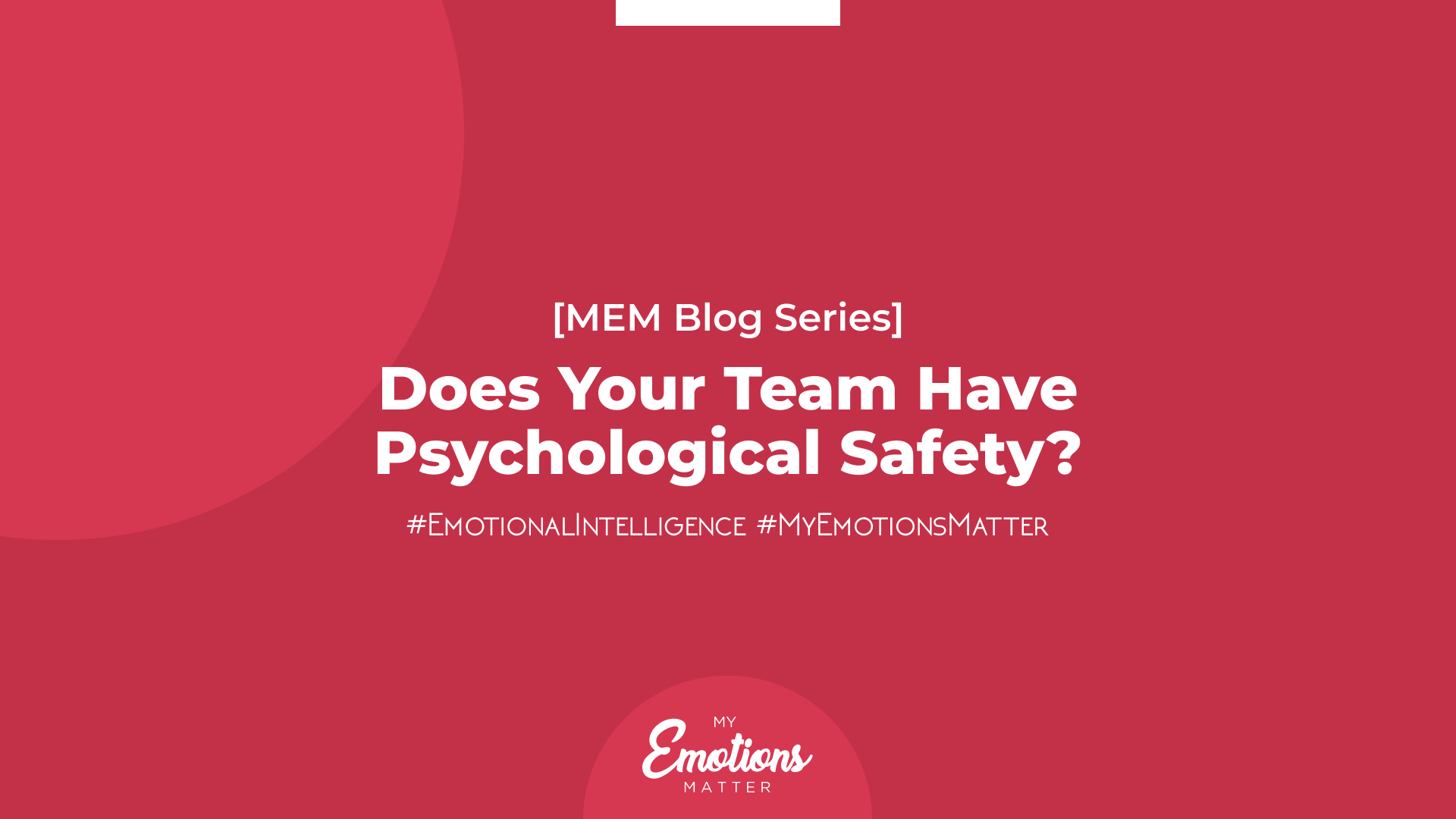Does Your Team Have Psychological Safety?
Hesitation to speak up
Have there been moments in your life when you felt a certain way but kept that feeling to yourself? This could be a question you wanted to ask, a concern you wanted to voice out, an idea you wanted to share or a mistake you wanted to admit. You aren’t alone. As human beings, we have different thoughts and feelings but we don’t necessarily share them. Why? The answer is simple: we fear being judged, humiliated or punished. This reluctance to speak or question can be referred to as 'psychological danger’.
Impact of Psychologically Unsafe Environments
When operating from a perceived sense of psychological danger, we keep things to ourselves. While it may seem like a safer option in the short run, we risk growing resentful towards those we don't open up to. We may also risk compounding the adverse impact of our mistakes. Our ideas don’t find room to nurture and grow and curiosity slowly dies due to questions that remain unasked.
Psychological Safety
The antidote is Psychological Safety: a climate for ‘interpersonal risk-taking’ like:
- Asking questions
- Raising concerns
- Sharing ideas
- Admitting mistakes
In psychologically safe environments, people don’t hesitate to say:
- I don’t know
- I made a mistake
- I disagree
- I have a concern
- I have an idea
In psychologically safe teams, member don't hesitate to speak up because they have a firm belief that what they say or do won't be held against them.
What are the Benefits of Psychological Safety?
- More inclusion as everyone feels safe to speak up
- Minimization of errors as root of existing problems are openly discussed
- Better innovation as sharing ideas is actively encouraged
Ensuring Psychological Safety
To ensure psychological safety, we have to make sure we start from the root level:
- Inclusion Safety: Members feel they belong in the team.
- Learner Safety: Members feel safe to ask questions.
- Contributor Safety: Members feel safe to share their ideas and opinions.
- Challenger Safety: Members feel safe to challenge existing rules and norms.
You can't expect someone to contribute an idea if they don't feel inclusion safety.
Reflection Questions:
1. What are some ways you try to ensure you're contributing to psychological safety in your team?
2. Which level of psychological safety might your team need to work on?




